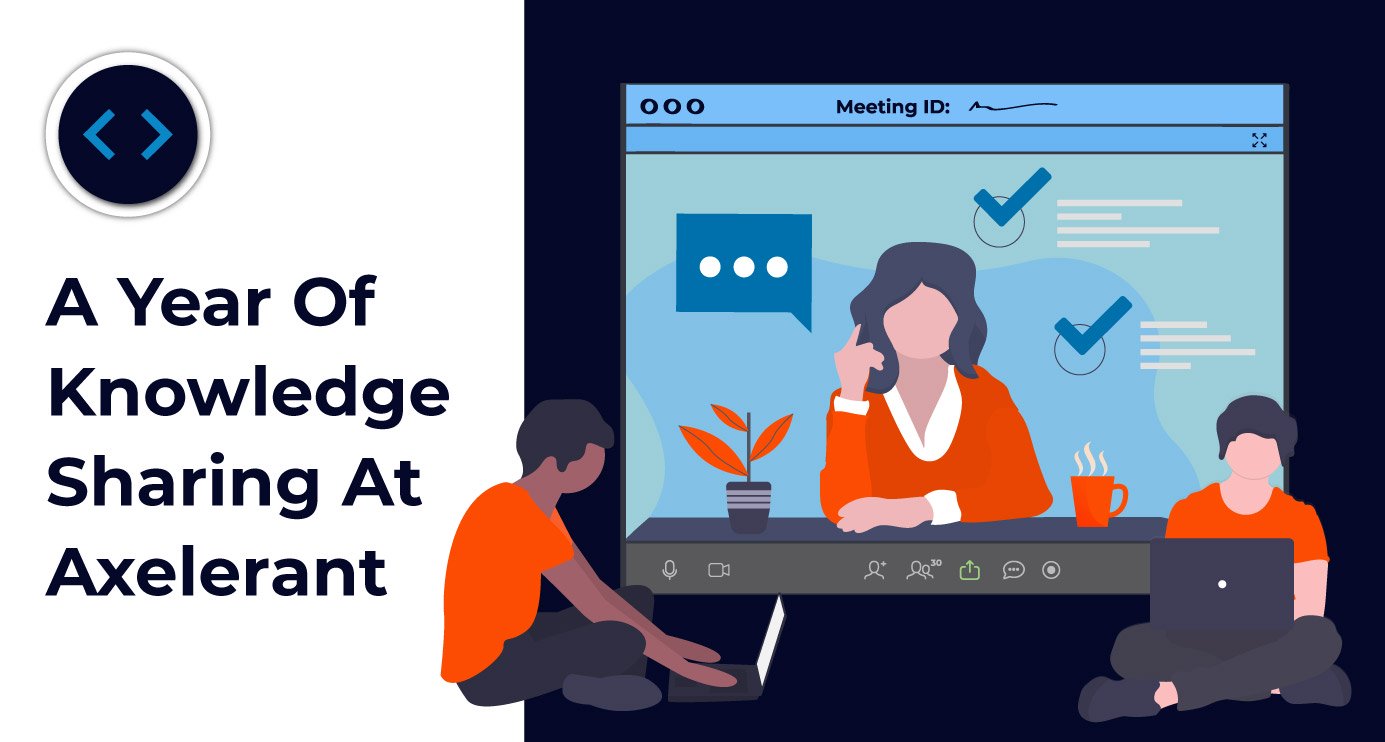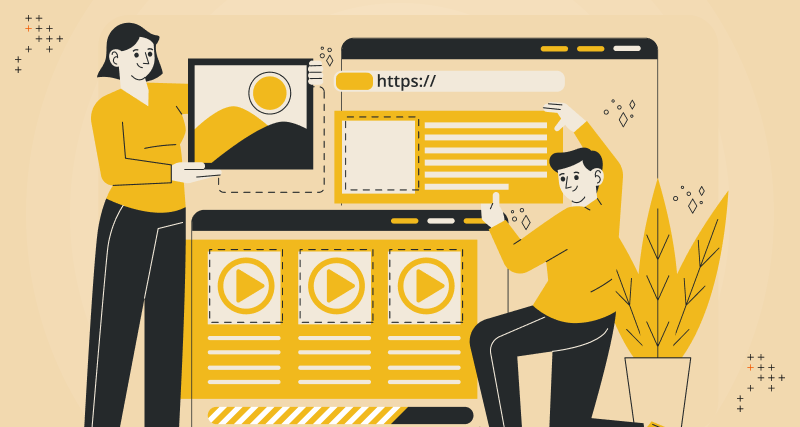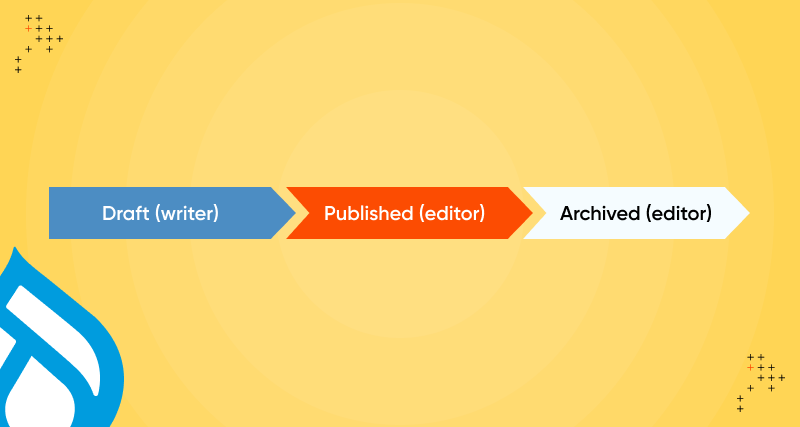Introduction
I hate knowledge silos. I’m sure nobody ever intends to create a knowledge silo, but they happen. Just like how nobody intends to create potholes but they happen as well (I might be wrong about the latter).
The idea of sharing
Most of the programs and actions I undertook in my days as an Engineering Manager had something to do with learning and sharing knowledge. As I transition into the role of a Service Area Lead, this continues to be my priority. This, I know for sure: people want to share what they have learnt but they face various obstacles. It is my job and mission to remove those obstacles.
Finding time for people to share knowledge is quite hard, especially in agencies. Under some of the engagement models at Axelerant, people are occupied and billed for 40 hours a week, and I don’t want to ask them to spend extra time to present, let alone prepare.
Then, most people are prone to stage fright, and the fact that they’re presenting on a conference call makes the associated problems harder (Axelerant is entirely distributed). Even when people find time to share, they don’t necessarily feel like talking about anything.
Finally, some people think that they have nothing to talk about. This is a common phenomenon among creative people, who feel that anybody could have done what they did, and there’s no reason to talk about it. Of course, this is not true. Everybody has a lot to learn, and something that’s obvious to one person may be entirely new to somebody else.
What we did
I set about trying to solve this issue in mid-2018. The latter two problems I described above (stage fright and feeling like you don’t have anything to share) can only be solved via mentoring. At the time, I was already leading a group of about 12 people. In our 1-on-1s, we would talk about the kind of problems they solved and the things they learnt. I would encourage them to submit their topics at meetups and conferences. Axelerant has a policy where individuals are sponsored to attend conferences if their talks are selected for that conference, and this helped people get started with speaking.
While getting an opportunity to speak at a conference is great, it’s not enough. They are infrequent, and each conference (or meetup) has criteria on the topics they accept. We had to figure out a way to give people the opportunity to speak in a way that would help them address any problems beforehand.
We started with two different programs to represent different styles of knowledge sharing.
The second one was called “webinars.” Here, people would share a new concept, technology, tool, or anything they had learnt with a larger audience. The key difference between the two is that show and tells are usually related to an ongoing project while webinars are generic. |
With the help of two of my teammates, Swarad and Mitesh, we launched these two programs across Axelerant Engineering in August 2018.
How we made it work
Defining and announcing a program is one thing and executing it is entirely another. To run it, I returned to my group of 1-on-1s and encouraged people to talk about their learnings in this new style. We had to start, and we did, with our very first show and tell by Rajiv and Prateek, held on 29th August 2018. Our first webinar was a month later, on 31st October 2018 by Sonu.
One of the things I knew beforehand is that I wouldn’t be able to run this all the time. Organizing this was a draining and difficult activity, and I couldn’t keep doing that along with everything else on my plate. To avoid this, the programs were designed with clear roles and responsibilities associated with each role. We just had to make sure there was an organizer who could run this program. Mohit, another awesome engineer, has been taking care of this for almost a year now, despite his busy schedule.
We also introduced sharing knowledge as a KPI, and encouraged people to present webinars and show and tell sessions as one of the ways to fulfil this KPI. It may sound crass to force someone to present a session. I am of the opinion that sometimes people need a push to start talking about what they do. And if they are not at all interested in talking, there are other means to fulfil the KPI. That KPI is important to us at Axelerant; we believe we only grow through sharing what we have learnt.
The finer points
To make this work, I stressed upon a few guidelines.
- Show and tells are supposed to be quick to prepare and present. The content should be a specific problem the person has solved and should not exceed 20 mins. There is no need for slides—just share your screen and talk about what you have solved. The content of these sessions is typically internal to Axelerant.
- Webinars are generic and may be shared publicly in the future. No project-specific or Axelerant internal information can be discussed here.
- Even though webinars may someday be public, don’t worry about the quality or messaging right now. We will solve that problem when we are ready for it.
- The show and tells and webinars are all scheduled at a fixed time every week, so that it is easy to block it on the calendar. It also makes it easier for us to build the habit of learning something new every Wednesday at 3 PM IST.
The numbers are in!
As mentioned before, our first show and tell was on 29th August 2018, and the first webinar was on 31st October 2018. Since then to the time of this writing (7th November 2019), these are some statistics about the program.
Let’s talk numbers! (Show and Tell + Webinar) |
39Total Sessions |
77Total Topics |
771Participants |
1908Duration (mins) |
In the table below, you’ll see sessions and topics. The difference is that there may be multiple topics presented in a single session. The program is designed such that show and tells are very quick, needing only about 20 mins. To make the scheduling effort worthwhile, we have up to three topics per session to make up a 1-hour session.
Show and Tell28Total sessions66Total topics546Participants1393Duration (mins)21Average topic length (mins)10Least attendance32Most attendance18Shortest session (mins)88Longest session (mins)34Unique speakers1.94Average topics per speaker6Most topics by a speaker |
Webinar11Total sessions11Total topics225Participants515Duration (mins)47Average topic length (mins)15Least attendance27Most attendance34Shortest session (mins)66Longest session (mins)10Unique speakers1.1Average topics per speaker2Most topics by a speaker |
What’s next?
I am proud to have been able to sustain this program for a long time. We have had these sessions every week on Wednesday at 3 PM IST with a few exceptions. The programs were designed with sustainability in mind, and consequently, they were never dependent on just one person running it.
Now that these programs are mainstream at Axelerant, it’s time to look at how to improve this. I have a few ideas I’ll be playing with, including combining the idea of learning clubs. An immediate task on my list right now is to build a better system to manage all of the tasks involved in running the program. We will be moving it from a spreadsheet to a CMS (Drupal, of course). I’ll share more about that in due course.

Hussain Abbas, Director of Developer Experience Services
Hussain is a calm ambivert who'll surprise you with his sense of humor (and sublime cooking skills). Our resident sci-fi and fantasy fanatic.

 We respect your privacy. Your information is safe.
We respect your privacy. Your information is safe.



Leave us a comment